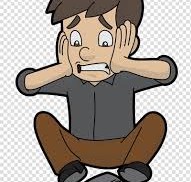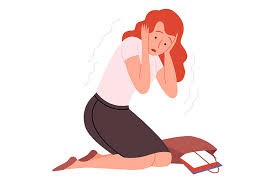Understanding and Overcoming Panic Disorder Effectively


What Is Panic Disorder and How Does It Start?
Have you ever felt an overwhelming rush of fear that seemed to come out of nowhere? This might be a sign of Panic Disorder, a condition where people experience sudden episodes of intense anxiety called panic attacks. These attacks may happen even in calm situations, leaving a person feeling helpless or confused. The experience often feels physical — the heart races, breathing becomes hard, and a sense of losing control takes over. People may mistake these feelings for serious medical issues.
Common symptoms include:
- Strong heartbeat or chest tightness
- Shortness of breath or choking sensation
- Trembling or sweating
- Feeling detached from reality or fearing death
These attacks can occur repeatedly, creating a cycle of fear about when the next one will come.Understanding how panic begins helps in recognizing it early and finding ways to manage it calmly.
Why Do Panic Attacks Happen? Understanding the Causes
Why do panic attacks appear even when nothing dangerous is happening? The answer lies in how the brain and body react to stress. Sometimes, the brain’s alarm system becomes too sensitive, making it respond to minor worries as if they were major threats. Many factors can lead to this overreaction, and identifying them can help in choosing the best support.
Possible causes include:
- High levels of stress or emotional trauma
- Family history of anxiety or mood issues
- Use of alcohol, caffeine, or smoking
- Health conditions affecting breathing or heart rhythm
These factors create a loop between fear and physical symptoms. Breaking this loop is the key to regaining control. Knowing the causes helps people respond with awareness instead of fear.
How Does Panic Disorder Affect Daily Life?
Can short moments of panic truly change daily life? For many, yes. Panic Disorder can limit what a person feels safe doing. The fear of another attack may make someone avoid leaving home or going to work. Over time, this avoidance can lead to isolation, frustration, and loss of self-confidence. Even simple activities may seem risky.
Impact on daily life may include:
- Avoiding crowded or unfamiliar places
- Difficulty focusing on tasks
- Constant tiredness after panic episodes
- Tension in family and relationships
Panic Disorder is not only about fear — it affects overall life satisfaction. Awareness of these effects motivates people to take steps toward recovery and regain normal life activities.
What Are Healthy Ways to Cope with Panic Disorder?
How can someone deal with panic and regain peace of mind? There are several helpful methods that calm the body and reduce fear over time. These techniques train the mind to stay steady during stress. They do not remove panic instantly, but regular practice can make attacks shorter and less intense.
Helpful coping strategies include:
- Slow and steady breathing to stay calm
- Writing thoughts in a personal journal
- Light exercise like walking or stretching
- Talking to a counselor or therapist
Using these strategies regularly helps reduce the power of panic and improves emotional strength. Coping methods build confidence and bring a sense of safety in daily situations.
When to Seek Professional Help for Panic Disorder
When is it time to get help from a specialist? If panic attacks begin to affect work, sleep, or social life, it is important to reach out for medical advice. Panic Disorder can improve greatly when treated by a professional. Doctors and therapists can help identify the exact type of anxiety and suggest a plan that includes emotional and physical care.
Reasons to seek professional help:
- Panic attacks occur frequently and intensely
- Fear of another attack affects decisions
- Physical symptoms cause constant worry
- Loss of interest in normal activities
Early help leads to faster improvement and better understanding of personal triggers. Getting professional support is an important step toward lasting calm and balance.
Role of Medication: How Sertafine (Sertraline) Can Help
Can medication help control Panic Disorder? Yes, in many cases, it can make a significant difference. Sertafine (Sertraline) is one of the trusted treatments that helps balance mood-related chemicals in the brain, reducing anxiety and panic symptoms. This treatment is not a quick fix, but it gradually helps people feel more stable and less reactive to stress.
Main benefits of Sertafine (Sertraline):
- Reduces intensity and number of panic attacks
- Helps manage ongoing worry and restlessness
- Improves sleep and daily focus
- Restores calm thinking and emotional balance
With regular medical guidance, this medicine supports overall emotional stability. Sertafine (Sertraline) can help people regain control and confidence in their lives.
Combining Sertafine (Sertraline) with Lifestyle Support
Can lifestyle choices enhance the effects of treatment? Absolutely. Combining Sertafine (Sertraline) with good daily habits makes recovery stronger and more stable. It also helps prevent panic from returning. Healthy routines give both the body and mind better resistance to stress.
Effective lifestyle practices include:
- Keeping a regular sleep pattern
- Limiting caffeine and alcohol
- Practicing calm breathing or meditation
- Spending time with supportive people
Medication alone may ease symptoms, but a healthy lifestyle builds lasting emotional strength. Together, they help maintain peace, confidence, and control.
Finding Peace Beyond Panic
Living with Panic Disorder is challenging, but it can be managed successfully. Step by step, people can regain peace, rebuild self-trust, and reconnect with the activities they once enjoyed. Every small improvement counts, and every calm moment is proof that recovery is real. With understanding, treatment, and consistent care, life after panic can be full of confidence and comfort once again.
Drug Description Sources: U.S. National Library of Medicine, Drugs.com, WebMD, Mayo Clinic, RxList, Healthline, MedlinePlus, Medical News Today, NHS UK, Verywell Mind.
Reviewed and Referenced By:
- Dr. A. Collins – Clinical psychiatrist specializing in anxiety and panic disorders, contributor to WebMD and Verywell Mind.
- Dr. M. Hernandez – Internal medicine specialist affiliated with Mayo Clinic and RxList, focused on mental and physical health balance.
- Dr. L. Roberts – Pharmacologist providing drug safety reviews for Healthline and the U.S. National Library of Medicine.
- Dr. E. Thompson – Licensed psychologist contributing research to NHS UK and Medical News Today about anxiety management techniques.
- Dr. R. Lee – Family medicine expert with articles in MedlinePlus and WebMD on emotional well-being and stress recovery.
- Dr. S. Patel – Psychiatric consultant for Drugs.com and Mayo Clinic, specializing in long-term anxiety treatment plans.
Article Post: Editorial Team of RXShop.md
(Updated at Nov 8 / 2025)

